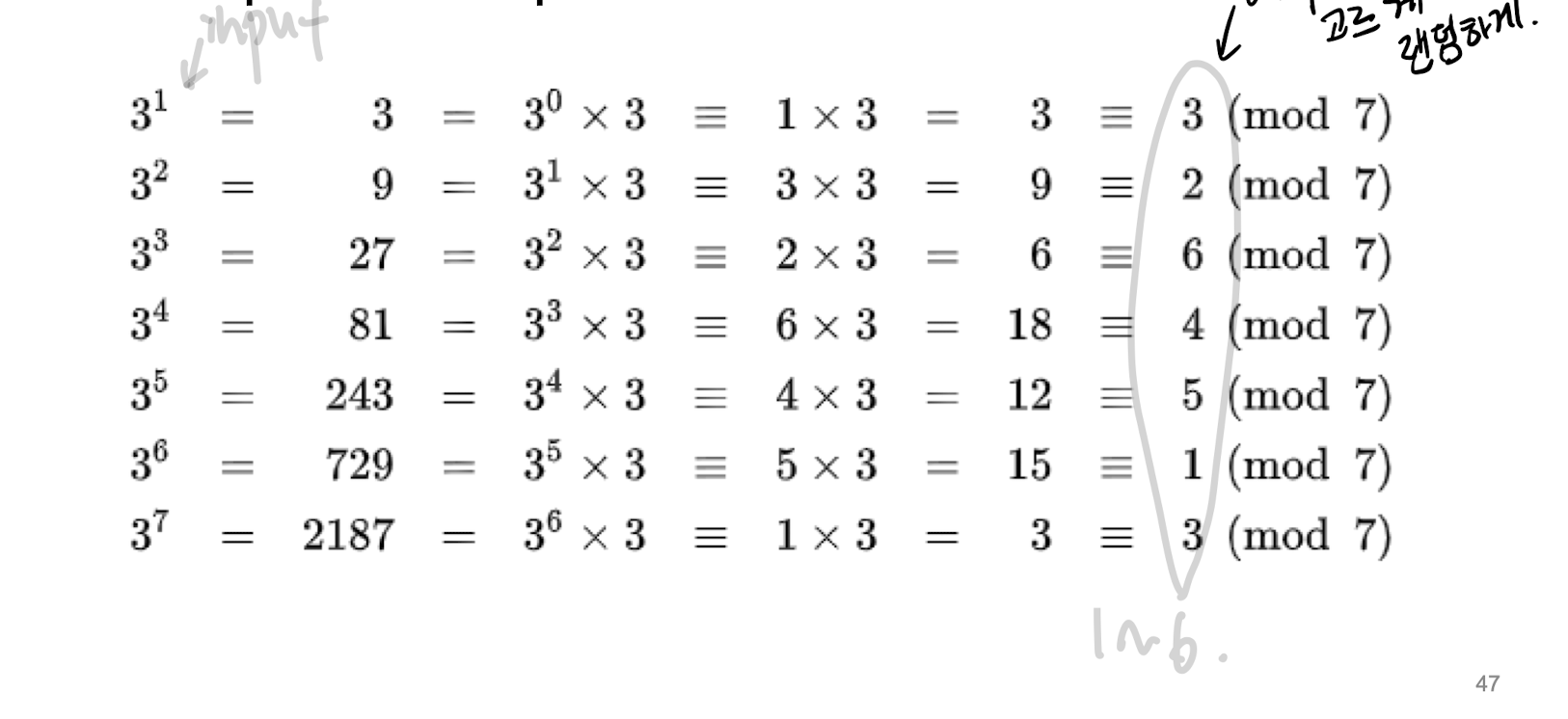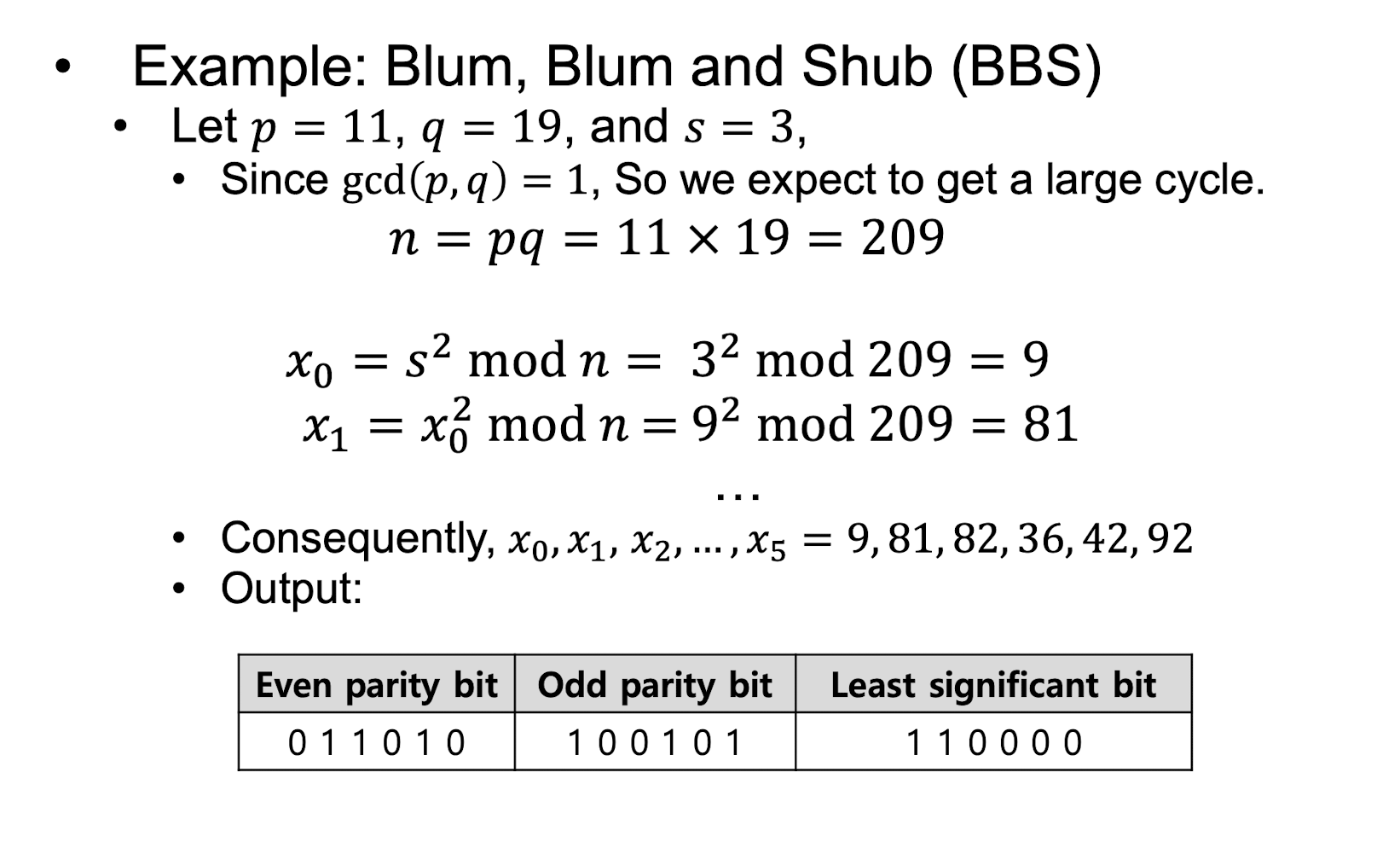Randomness
bad case
- netscape secure socket layer(SSL)
- predictable 하다
good case (true random number generators)
- radioactive decay
- thermal noise
- polarization of photons
- timing of movements of a hard disk read/write head
...
🌻PRNGs : Psuedo Random Number Generators
mod
-> may look random, but predictable
- automatically create long runs of numbers with good random properties
- but eventually the sequence repeats
- because and is leaner!
⚠️ Linear Complexity should be avoided!__
-
의 경우 linear 하다
-
평가방법
- Berlekamp-Massey Algorithm
- 이 알고리즘은 minimal polynomial of linearliy recurrent sequence in an arbitary field!
- Maurer's Universal Test
- test a sequence or system for strength
- it should not be possible to significantly compress the output sequence
- Next bit Test
- 첫 output의 x bits dms (+1) bit절반 이상이 바뀌어야한다.
- Berlekamp-Massey Algorithm
🌻 CSPRNG : Cryptographically Secure Pseudo Random Number Generators
based on existing cryptographic primitives
- Secure Block Cipher running a Counter
- Random Key + Counter (0, 1, 2, 3, ...)
- Secure Hash running a Counter
- Random Key + Counter
- Stream Cipher running a Counter
- Pseudorandom stream + Counter
- Shamir's PRNG
- suggested that RSA could be used as a PRNG, but slow
Cryptographic PRNG
- system use a complexity/number theory approach to PRNG
Standard Examples (practical PRNGs)
- ANSI X9.17
- Financial Inst. Key Management
- FIPS 186-4 Generator
- Digital Signature Standard v.4
- NIST SP800-90A
- Recommendation for Random Number Generator Using Deterministic Random Bit Generators
- ANSI X9.82
- Dual_EC_DRBG
🦋 Blum-Micali Generator
-
has unconditional security prrof
-
Based on discrete logarithm problem(NP)
- mod
where p is a prime, g is a primitive root modulo p , and is a seed
- mod
-
output of generator is
- '1' if is less than (p-1)/2
- '0' otherwise
-
primitive root modulo
- is primitive root modulo if every number a coprime to is congruent to a power of modulo
- ex) 3 is a primitive root modulo 6

🦋 Blum, Blum and Shub (BBS)
-
n = p * q 일때 오른쪽->왼쪽은 어렵고 왼쪽->오른쪽은 쉽다
-
based on difficulty of integer facotization
-
n = pq이고, seed integer 은 s일때
mod
where mod -
can directly calculate via Euler's Theoerem
mod
where -
output
- either the bit parity or the least significant bits of
-
ex

